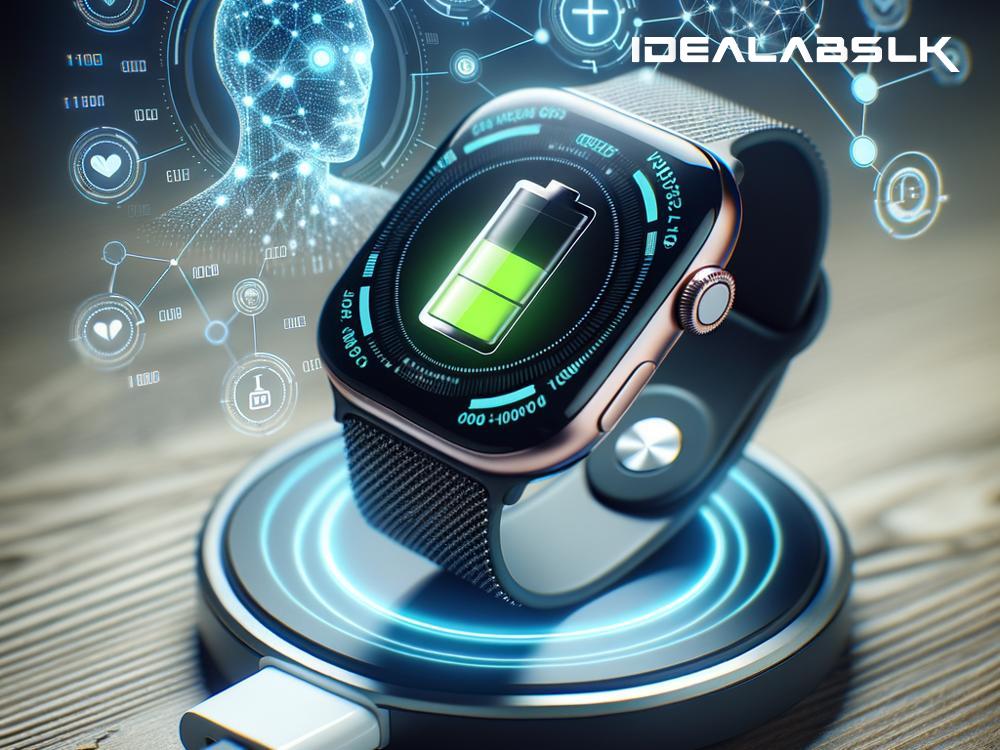How AI is Revolutionizing the Way Wearable Tech Stays Powered Up
Picture this: You're halfway through a busy day when your smartwatch, which tracks everything from your steps to your schedule, sends out an SOS - it's about to die. Annoying, right? Well, the good news is, Artificial Intelligence (AI) is swooping in to save the day, particularly in how our wearable gadgets manage their battery life. Let’s dive into how AI is optimizing the charging cycles of wearable technologies, ensuring our devices are more reliable than ever.
Understanding Charging Cycles
First off, let’s break down what a charging cycle is. In simple terms, it refers to the process of charging a battery from 0% back up to 100%. However, constantly charging a battery to its full capacity and then draining it completely can wear it out faster. That's where AI steps in - it’s like a smart friend for your gadgets, helping them maintain their health and stamina (i.e., battery life) for longer.
The Role of AI in Charging
AI can do some pretty impressive stuff when it comes to managing the battery life of wearables. Here are a few ways it's making a difference:
-
Learning Your Habits: AI algorithms can learn your usage patterns. This means if you usually go for a jog in the morning while listening to music on your smartwatch, the AI can ensure the device has enough battery for that and then some. It understands your daily routine and adjusts accordingly.
-
Smart Charging: Instead of charging a battery to 100% all at once, AI can optimize the process. It might charge the battery quickly to a certain percentage and then slow down, reducing stress on the battery and extending its lifespan. This approach, often referred to as adaptive charging, helps keep your device’s battery in top shape for longer.
-
Predictive Analysis: By analyzing past battery usage, AI can predict future needs and manage the battery life proactively. For instance, if the AI detects that you have a meeting coming up and you usually use a specific app during meetings, it can ensure there's enough charge to support that activity.
-
Efficiency Optimization: Wearable devices have various sensors and features, from heart rate monitors to GPS, which all consume battery differently. AI can tweak these systems, turning off what’s not needed and finding the most power-efficient way to run those you are using. This dynamic adjustment ensures the best possible battery performance.
Real-World Impacts
Imagine not having to worry about your fitness tracker dying in the middle of a hike or your smartwatch fizzling out before an important call - that’s the promise of AI in wearable tech. Here’s what it means for you:
- Less Stress Over Charging: You won't need to plan your day around charging times or carry power banks everywhere. Your device would manage its battery proactively, staying charged for when you need it most.
- Longer Battery Life: Not only does AI help in daily battery management, but it also extends the overall lifespan of the battery in your wearable device. Less frequent replacements equal more savings and less e-waste.
- Personalized Usage: With AI, your wearable device caters to your specific needs and habits, ensuring an incredibly personalized experience. It’s like having a device that’s uniquely attuned to your life.
The Future is Bright (and Fully Charged)
As AI technology continues to evolve, we can expect even smarter and more energy-efficient wearable devices. Innovations may include advanced predictive algorithms that can better anticipate our needs and even more sophisticated charging techniques that could see our devices lasting weeks, not days, on a single charge.
AI’s role in optimizing charging cycles is just the beginning. This technology holds the potential to transform not just how we charge our devices, but how we interact with them. As we move forward, the seamless integration of AI in wearable tech promises not only to enhance our convenience but also to redefine our relationship with technology in our everyday lives.
So, the next time you strap on your smartwatch or fitness tracker, remember: there’s a world of AI-driven intelligence working quietly in the background, making sure your device is ready to go whenever you are. The era of constantly worrying about the next charge is rapidly becoming a thing of the past, all thanks to AI!

